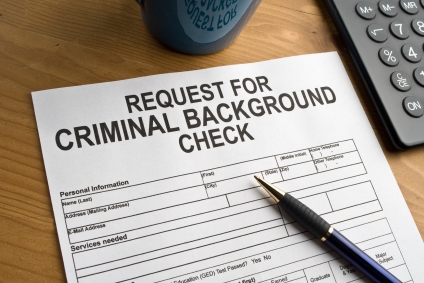Can you become a police officer with an expunged felony or misdemeanor?
This will depend on the law enforcement agency and which crime the person was convicted of. Unlike most occupations, law enforcement agencies require one to disclose expunged convictions. The fact that the crime was expunged increases one’s chances of being considered for a job working for state or local police, corrections, or other law enforcement agencies. The reason is that getting a criminal record expunged means the person did not commit a serious disqualifying crime (e.g. sex crime) and has likely had no more than four convictions in one’s lifetime. In addition, the granting of an expungement means one has satisfied any and all sentencing requirements and has been determined by a judge to be working toward being a better citizen.
Any law enforcement agency is going to take the above into account when one applies. However, it is not a guarantee that an applicant will be considered. Each agency has its own standards, and other factors (such as past work history and performance on entrance exams) will also be considered.
One thing that is certain is that hiring officials will ask questions about the convictions. As such, one would be well served to consult with an attorney as to how to answer questions with regards to the crime, the conviction, and the expungement.
Can you be a cop if you have been arrested?
Possibly. Having been arrested is not an automatic disqualifier for one considering a job as a police officer. If the arrest did not result in a conviction, this will be taken into account. Keep in mind that, even if the arrest has been expunged, it must be disclosed in applications to law enforcement jobs (unlike many other professions). As mentioned above, police departments will consider a wide variety of factors when considering applications and the arrest is just one.
Can you become a cop with a DUI/DWI conviction?
Technically, yes. However, the police agency in question will likely ask many questions about the incident and the resulting conviction. Keep in mind that a DUI conviction in New Jersey cannot be expunged and will never drop off of a NJ driving record. Even a conviction in another state that has been expunged or is no longer on one’s driving record may still need to be disclosed.
Can I be a teacher with a felony?
This depends on the felony in question and the school district/state where one is applying. New Jersey automatically disqualifies one from being a teacher if he/she has been convicted of the following crimes:
- Aggravated assault
- Any first- or second-degree crime
- Arson
- Burglary
- Child abuse
- Criminal mischief
- Criminal restraint
- Endangering the welfare of a child or incompetent
- Kidnapping
- Luring or enticing a child
- Manslaughter
- Most drug crimes
- Murder
- Perjury and false swearing
- Reckless endangerment
- Resisting arrest
- Robbery
- Sex crimes (e.g. rape)
- Stalking
- Terrorism
- Theft in the third degree
- Weapons violations
The good news is that many of the above-mentioned felonies (e.g. resisting arrest, theft, reckless endangerment and weapons violations) can be expunged. A person who can get his/her felony conviction expunged can legally deny it when applying for a job or license to become a teacher.
Is a drug test required for an expungement?
Unless a person was required to undergo drug testing as part of a sentence, a drug test is not required when filing for an expungement. A person who was ordered to undergo drug testing by a judge during sentencing must complete and pass all required tests before applying for an expungement.
Can the military see expunged records?
Yes. The military is one of the few bodies that can request to see expunged records. A person enlisting must disclose expunged convictions. These convictions do not mean that one will be denied entry into the military; however, failing to disclose them does.
Can you get a TWIC card with a felony?
A person can still obtain a Transportation Worker Identification Credential (TWIC) card provided it is not one of several disqualifying felonies. Keep in mind, that some interim disqualifying felonies are eligible for a waiver.
Does PTI show up on background checks?
Yes. Completing a Pre-Trial Intervention (PTI) means a person was not convicted of the crime in question. That said, the arrest can still show up on a background check. If it does, the background check is likely to show that the charge resulted in a PTI disposition. The good news is that both the arrest and the PTI can be expunged.
What can you do about a criminal conviction in New York or New Jersey?
Having a criminal record in New York or New Jersey severely limits the opportunities one has to be gainfully employed. However, it doesn’t have to be that way. By filing for expungement of one’s criminal record (NJ) or applying to have the record sealed (NY) one may be able to put the mistakes of the past behind them and enjoy more fruitful job opportunities.
If you or a loved one is concerned about the effect a criminal conviction will have on your life, speak with an attorney to find out your options. The lawyers of the Rosenblum Law are skilled expungement and criminal defense attorneys with experience helping people rebuild their lives after a conviction. Email Rosenblum Law or call 888-815-3649 today for a free consultation about your case.


